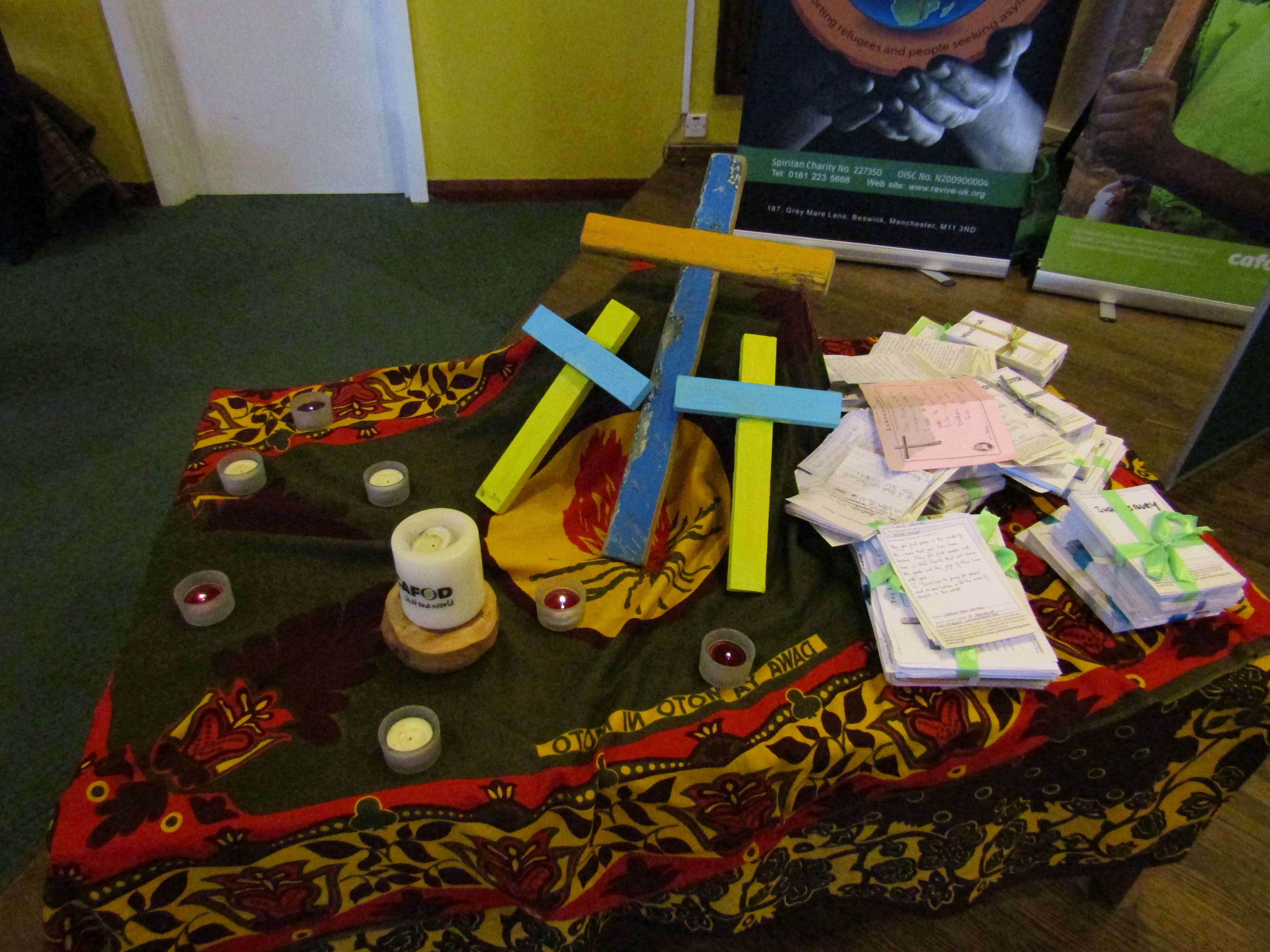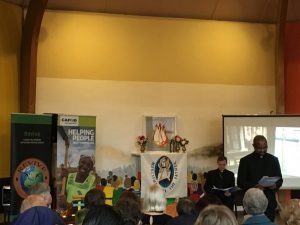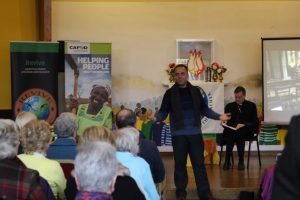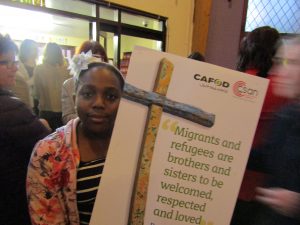
A Service of Hope for Refugees: ‘Welcome the Stranger’
Are you becoming all too accustomed to reading and hearing about xenophobia being on the rise, fuelled by the hateful rhetoric that has become commonplace in mainstream politics?
Are you being led by the media to believe that everyone across Europe and America are ready to close down their borders and shut their doors?
I’m going to tell you a very different story…

Fr. Uchenna, of Revive
On Saturday 3rd December 2016, over 24,000 messages of support and hope to refugees was dedicated at a Service of Hope for Refugee at the Spiritan Centre, Salford.
The Messages had been written by people of all ages from R. Catholic dioceses in England and Wales.
One message from Plymouth read:
“Never give up hope that one day you can find somewhere safe, somewhere you can be at peace and somewhere you can protect your family. There are so many people that want to help.”
The Service of Hope, which was used to mark the end of the Year of Mercy and the beginning of Advent, was dedicated to showing a united force for welcoming refugees in the UK. Hence, the name: “‘Welcome the Stranger’.
It was jointly organised by REVIVE, CAFORD, CSAN, SJRS, with CARITAS, Salford and led by Bishop John Arnold, from Salford Diocese.
Among the speakers was Majed, a Syrian man who was forced to flee his hometown almost three years ago. He arrived in England in August 2015, after a perilous journey. One year and four months later, he has finally been reunited with his family. He is a highly valued volunteer and friend of Revive.
“Really I am very thankful to Revive, for helping me to bring my family here. It has taken one year and four months with the Home Office and all the procedures involved. They refused my family at first and then I had to do DNA tests to prove that they are actually my family”.
There is a culture of disbelief at the Home Office, which can make it tortuously difficult for people to bring family members over to safety, via the Family Reunion process.
“I did this to look for a good future for my children, not for me. I made this decision for my children”.

Majed, a Syrian man, former service user and a volunteer at Revive shares his experience
It is worth at this point challenging the suspicions that many people seem to voice as to “why the male refugees coming into our countries have left their children and wives behind?”
Fathers, husbands and brothers- would you send your wives, sisters or children to do this trip? Would you ask them to join you on a little boat and risk drowning, being trafficked or exploited?
Or would you do it alone, knowing that there was a chance if (and it’s if, not when) you reached the new country that you would be able to claim asylum yourself and then bring them over legally and safely?
Even after all of this suffering, Majed is full of positivity and an infectious energy emanates from him. He is visibly rejuvenated by having his family back beside him.
“It’s strange to me”, said Majed, “because when I was studying English literature in Damascus, I had always dreamt of coming to England and experiencing the English way of life, the home of Keats and other English poets”.
These weren’t the circumstances under which Majed had ever anticipated coming to England.
“When I arrived, I found that I was met by so many good people. Words really cannot express my feelings. I am so happy now to be reunited with my family and so very thankful to all of the good people who helped me to get them here, especially the Revive team”.
Supporters were left with a renewed feeling of hope and empowerment. Together, we can make a difference.
John, who is a volunteer at Revive, said that he had been particularly moved by Bishop John’s reminder that on journeys people need each other.
“It’s just a part of being human”, said John, “because sometimes we don’t live up to the standards of being human”.
It is important to remember at times like these that there are hundreds of thousands of people who, like us, feel no hostility towards newcomers to this country.
Most people, like us, see refugees as the normal people that they are, who are just looking for peace and are ready to welcome them with open arms.
We are all human and deserve to be treated as such.
This is the message that we need to spread and we saw this in the inundation of powerful messages of hope that came to this service.
Yasmin, aged 10, said her message to all refugees would be:
“This is your home too”.

Yasmin, a young girl with a big heart
Why the crosses?
The Lampedusa crosses are a symbol of hope throughout the world. They were created by a Sicilian carpenter named Francesco Tuccio, from the wreckage of a boat carrying refugees that had been washed up on the shores of Lampedusa. He offered crosses to survivors as a symbol of their rescue and a symbol of hope.
By Hattie Ditton

